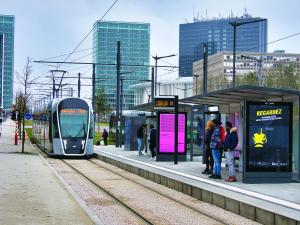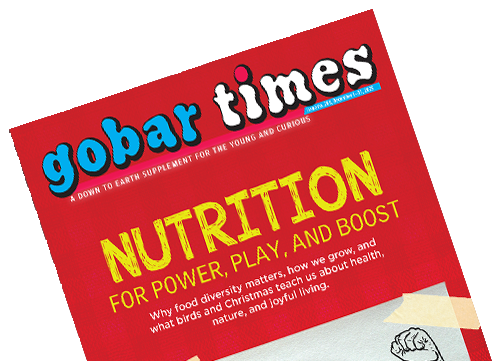
Delhi made bus rides free for women in October 2019 and it has been a mixed experience so far. Since the initiative was launched, women ridership has gone up from 30 per cent to 45 per cent but it has also left the Delhi Transport Corporation (DTC) worried about its mounting losses. The cash-strapped bus operator feels the losses will translate into poor bus service. This is worrying since 15 per cent of bus trips get cancelled every day due to poor maintenance. While the Delhi government plans to extend free bus services to students and senior citizens, many are wondering if the city can afford to make public transport free.

Every winter, air quality in Delhi becomes critically dangerous. Here is a list of dos and don'ts to help you stay safe

Crammed school vans with children seated on the top of the compressed natural gas (cng) cylinder is a big safety hazard. Keeping any luggage or load on the cylinder can damage its pipe, hose, valve and other parts and it increases the risk of an exlposion

Germany has launched the world’s first hydrogen-powered train in September 2018 because diesel-operated trains cause a lot of pollution. Built by French train maker Alstom, two trains painted in bright blue colour now operate on a 1.6km stretch in northern Germany. Hydrogen trains are eco-friendly because they are equipped with fuel cells that produce electricity through a combination of hydrogen and oxygen, a process that leaves steam and water as the only emissions. Excess energy is stored in ion lithium batteries on board.
World Health Organization has issued a strong warning about the effects of air pollution on children. On October 29, 2018, it released a report called Air Pollution and Child Health. It states that in 2016, 600,000 children died from acute lower respiratory infections caused by polluted air. What is worse is that 93% of the world's children under the age of 15 (1.8 billion) are exposed to high levels of PM 2.5 which are superfine air pollutants. Worst are those living in developing countries where 98 per cent of all children are exposed to very unhealthy air.
Most of us love fireworks during Diwali. But these bright and colourful crackers have a dark side It's the toxic metals that give fireworks the beautiful colours we find magical The red colour of a firecracker comes from Strontium, a metal that causes bone growth problems in children Barium, which gives fireworks the green colour, is harmful to the nervous system, the heart and can cause tremors, weakness, anxiety, shortness of breath and paralysis.


Green schools are taking initiatives to clean the polluted air around us
As we gear up for winter, we cannot ignore that this is the time when we experience the worst of air quality across cities and towns. The air we breathe is filled with toxic pollutants like nitrogen dioxide (NO2), sulphur dioxide (SO2), carbon monoxide (CO), particulate matter (PM 2.5, PM 10), lead (Pb), ozone (O3), among others, arising from multiple sources such as vehicles, industries and power plants.
Delhi has been infamous for its air pollution, for years, especially after the World Health Organisation reported it to be the most polluted city in the world in 2014.
Moreover, Delhi residents are not alone in grappling with air pollution. Many other cities such as Allahabad, Varanasi, Patna and Kanpur are also equally at risk.

Why has it become increasingly diffiicult to run even during early mornings?
Suddu was anxious. He tightly grabbed Papa’s hand to avoid getting lost in the crowd. This was the third medical store they had visited since morning to buy a mask. The first two in their locality had already run out.
“Papa, when will we go home? I am hungry,” said a visibly irritable Suddu. More than hunger it was the urge to get out of the crowded medical store. “As soon as we buy the mask, beta,” his father assured him. “But why is there such a long queue?”...

The girl would remember that winter fondly as the one when they made their last snowperson.
Her elder brother and sister and two girls and another boy from the neighbourhood had developed a ritual over the years. Every time it snowed substantially, they would leave all but one of their kãgers at home, put on their Duckback boots and homemade woollen gloves and head for the clearing between the walnut trees behind their mohalla.

